Past Kurseong’s mildly raging centre of town we settle at last at Goomtee, again with Rajiv acting as flawless and entertaining guide easing us through everything. He recounts a years’ ago walk he took wandering through tea gardens when he was younger, when his family were younger…he speaks of Goomtee. Rajiv Lochan has been a kind of unflappable organizer as we wander, generously running us any which way we choose travel, with random bits of thoughts on all matters. He has utter faith in the methodology of the Goomtee and Jungpana estates and hints that it is one of his sanctuaries for marvelous tea…there is little that is left to chance, he says, in such places. The people, its teas, and its processes are systematic, entirely set and the results are something rare.
We’ve wandered through Darjeeling’s gardens for almost a month but it is here when we arrive in complete darkness that there is a sense of having really arrived. My wife Julie mentions this arrival and how odd it is that after all of this time, we end up arriving with no view of anything; just a sense of the place. Even in dark there is a feeling of a sanctuary as though the place is enveloped. The darks are darker, the silences left intact, and the air somehow filtered.
Morning comes with a gift in the name of Prem. Barefoot and silent, this wonderful character is cook and caretaker of the Goomtee house that we stay. He ghosts across floors that are kept spotless and waits unashamed for a nod of acknowledgement that his culinary creations are enjoyed, before disappearing with a slight smile.
It will be like this every single meal every single day, regardless of other events, tea sessions, whatever. Food here, like tea, is something utterly sacred and Prem is the purveyor of the former. Tea is served first thing in the morning, served again at breakfast and lunch as well as at dinner, with another tea break shoved nicely into the afternoon slot.
The classic tea estates of Castleton, Thurbo, Margaret’s Hope, Giddapahar and Makaibari all lie within easy reach but here in the quiet valleys of Goomtee, it feels very much like we’ve found a different place altogether…or so my mind feels. This valley’s teas have always benefited from some ‘tea-staples’: south facing slopes, ample mists – and sun – with loads of spring water and drainage, along with prime elevation. Besides Goomtee and Jungpana gardens, the valley which splays out encompasses the Muscatel estate as well as the Mahalderam estate.
Tastings over the next days are done with neatly lined up cups at all times of day. Tastings generally can be things of joy but they can too be times of darkness if potentials aren’t realized or the ever-moody palates aren’t properly satisfied. These sessions were not at all overcast or despondent.
Two sessions stand out in particular. One tasting was special for the teas in particular and the journey to get to the tasting and the other was impactful for the personality that accompanied the sublime fluid.
Mr. Mudgal, Goomtee’s elegant General Manager stands languidly in front of the cups with a scarf around his neck. He is gently directing and assessing all at once and the reverence that those around him have for him is genuine. DK, who stands beside me says of Mudgal and Goomtee generally “Tea here is still made with the hands instructing…how can a machine know when fermentation is done? It needs the hands”. We stand in the tasting room, which is an immaculate run by systematic ruler. Every thing has a function. Mr. Mudgal is a lot of things that are very different from Raj of Makaibari. Quiet and serious, his smiles are things rare and magical and as we sample there are the sharp inhalations of liquid zipping into the mouth and its depths. He is a strict adherent to a system and one who samples even the smallest of freshly produced runs of tea.
From beginning to finish Mr. Mudgal infuses his teas with this feel of utter dedication. He explains that all he is concerned with is the particularities of teas made here. He knows the various notes that the harvests should hit on the palate. “Every garden is different and every estate has specialties. I’m only interested in mine here”. There is fierce pride in his space and his teas, but not one spot of arrogance. He is a dedicate of the leaf and a staunch believer in those rare core values of effort and integrity, and whatever must be done to achieve a good tea, he will willingly do it. He and his spirit imbue the place, the people, and the teas and that reputation was only enhanced as I traveled through the region in the past weeks. Everyone spoke of an unerring master and of an elegant advocate for the “right way of doing things”.
The Spring harvests flirt with the palate but nothing more for me and that is because of my own preferences. Summer and Autumns however, shine with their smooth dark layers. Layers of butter and malt cruise into the palate and do not relent.
“Which do you prefer?”, comes the question. When I point out two and my wife points out one, he imparts some of the simple magic of the tea world…not some complicated theory or anything deliberately mystic. “These are all well made teas. What is important is to know why they are the way they are, and what gives each tea its qualities. It isn’t so important which tea you prefer”. From here he began an explanation of each tea and where it was from and what qualities he felt they imparted.
The second tasting of note comes only after the legs have done some churning and some gardens have been wandered through. They pitch, angle and dip down into the bowl valley deep below. We wander through Muscatel and on into Jungpana, having left Goomtee by foot.
It wasn’t enough to simply take the teas and slurp them. When one can, one needs to see the gardens, walk the soil and see the pockets of community life that supplied harvesters, hands, and bodies to the Jungpana cause. With this walk one can feel and take in the reasons why this valley is such an ideal swath of land. Sitting in a south-facing island of isolation with spring fed streams and rivers that roll down the steep banks, tea bushes spring and line every contour and swell. Known as the “Island in the Mountains”, with chiseled gardens ranging from 914 to 1370 metres, access to the factory is still by little cart road which on this day is being reconstructed after recent landslides.
Julie wanders with me through the factory which is another epically clean place of smoldering tangs and wafts. She is seeing different things, smelling different currents, and feeling the place differently…such are impressions and senses.
It is a day of rest for the workers with only a few finishing up with a newly finished late harvest offering. The nearby high Mahalderam estate makes up the famed ‘quad’ of formidable tea providers joining Goomtee, Jungpana, and Muscatel in this valley of the leaf.
After having been outfitted with an apron, a little cap and shoe coverings we’re ready to seep into the place. Cups have been lined up and cups are ready.
Swiftly and almost belligerently I steamroll towards the tasting room, having had enough of the smells to feast on, now needing a little hit in fluid form. It is something entirely wonderful to finally be in the bunker from which an epic tea emanates from, though I try to keep some naivety in the mind rather than expectation…which is entirely useless.
Lined up tidily are tasting cups, spoons with white envelopes of scrawled notes (and leaves) behind. A quiet space of autumn harvests. Heavier, warmer, nuttier, these late harvests are bigger on the palate and they will suit just fine.
We move through the line up with a single spoon, rinsing with hot water after each and every sampling. Each tea is from a particular garden or combination of gardens and this is noted in detail in writing behind the individual cups. Some gardens sit higher, angle more southerly, or simply cover a wider expanse of space. They all hit the palate with fullness and warm nut tones, but one tea oozes butter and it is from the higher estates of Mahalderam. Leaves from Mahalderam are brought down into the Jungpana factory for processing and the warm butter and nut notes wander around the palate and olfactory nerves, while at the same time gripping the entire mouth with strength. It is a sensation that is not lost, even after taking other samples. It has become embedded somehow. It is right for my own version of what is good. I’m smitten and as it is so often, it is not a quick thing. It lasts for a couple of days and then it lasts a few more, until I purchase a few kilo’s.
Mr. Mudgal – draped as ever in his scarf – ensures our few kg’s make it from the Jungpana factory and when they arrive they have been freshly bagged and sealed. He inspects them, saying nothing but nodding slightly.
During the weekend of our departure from the ‘island in the mountains’ a football tournament is in full swing and a highly touted team from the flatlands of the Terai further south is playing a local team made up of teens and some of the tea pickers in Goomtee. My loyalties immediately swing to the locals. I cannot not hope that they win, and win they do.
Prem, barefoot and proud serves us a last cup of tea before our own departure.
He still is silent as he waves with a smile as we leave his beautiful little world. I picture him preparing a tea shortly after our departure.

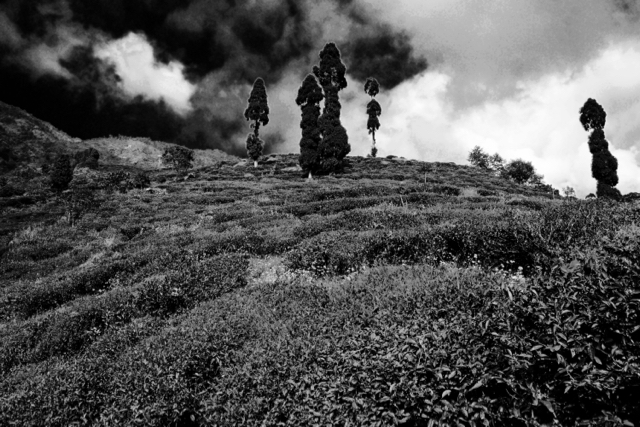
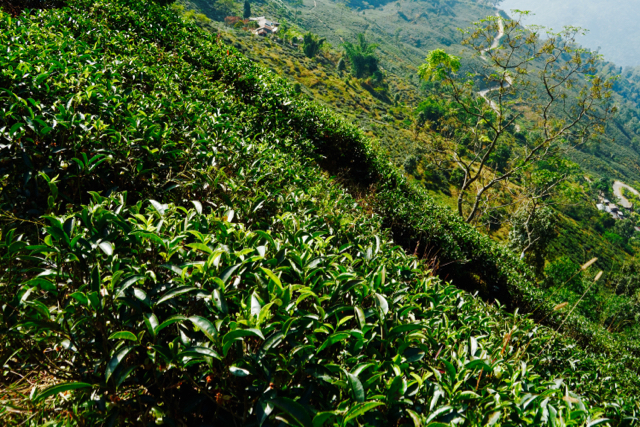
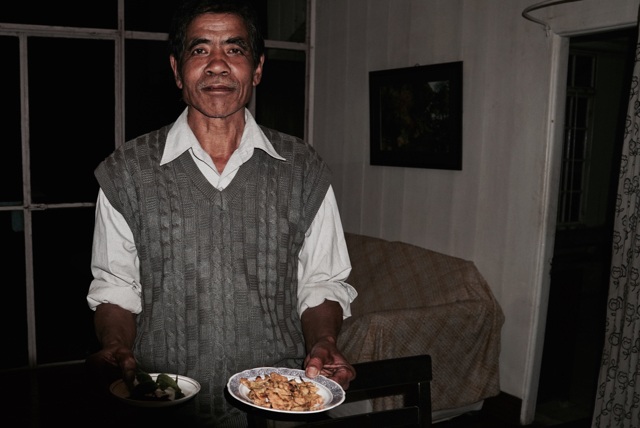


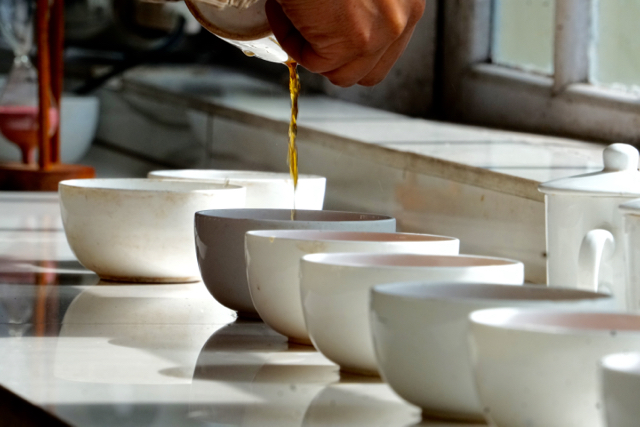
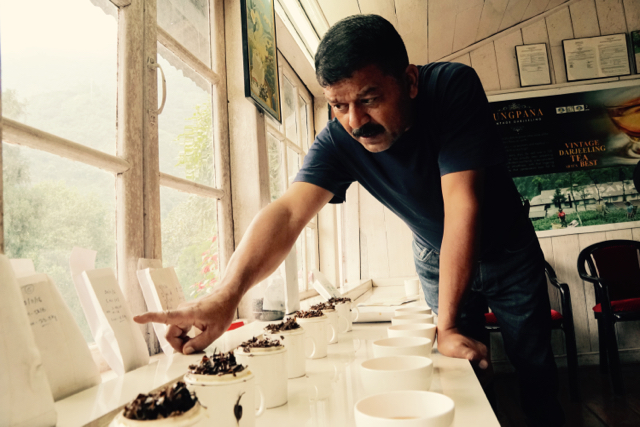

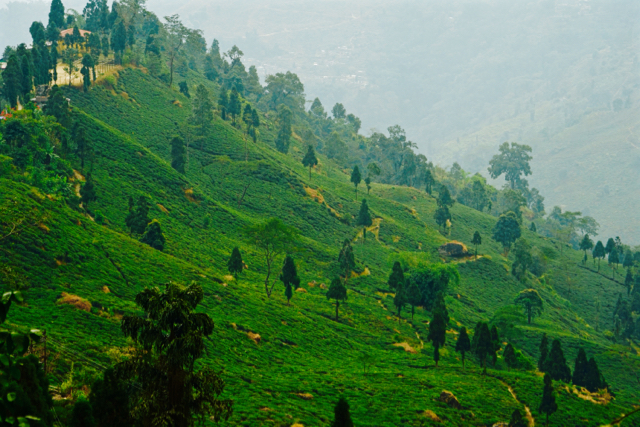
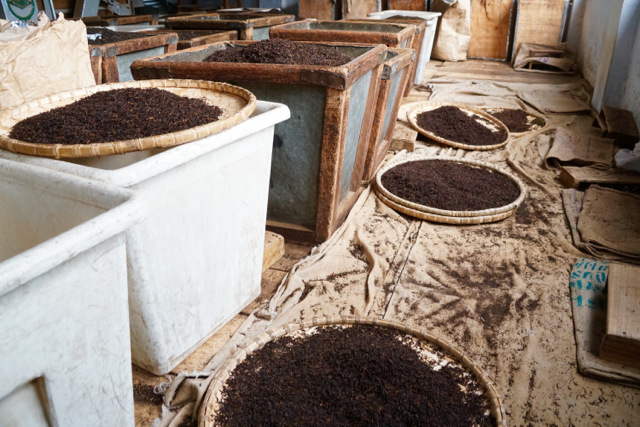
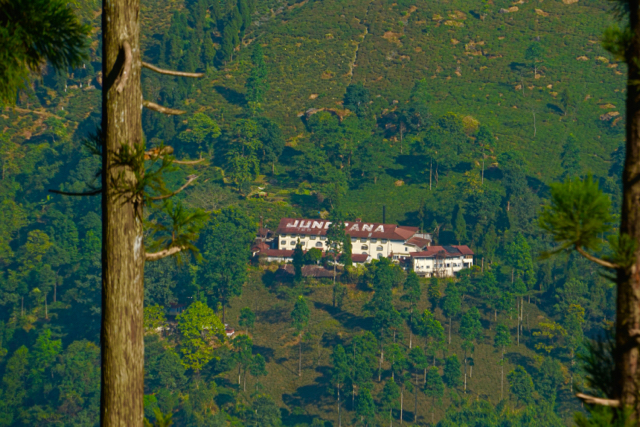

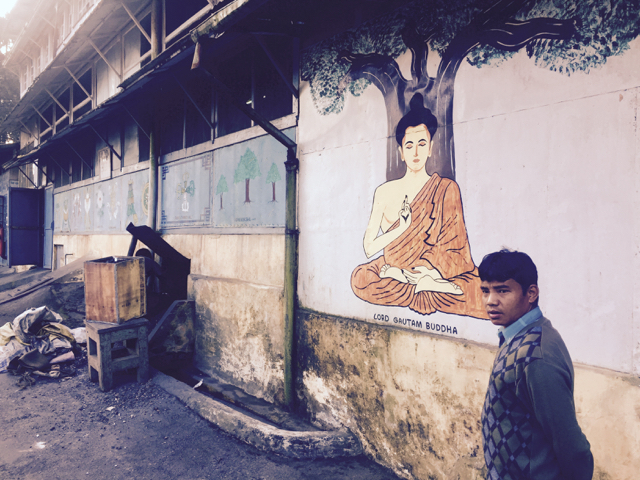
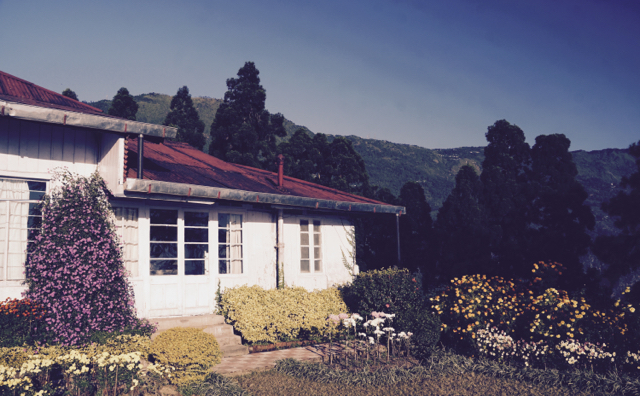
Beautifully written post. You are quite an eloquent writer. I almost felt as if I was there with you through your words. Thank you for sharing.
Appreciate you joining Stephen – it was a journey full of characters and times that needed words.
Jeff